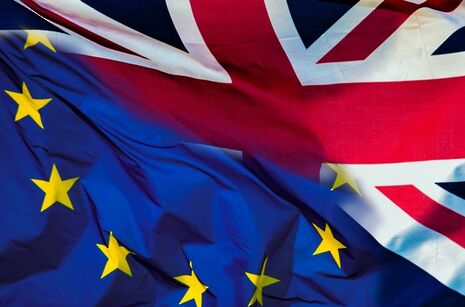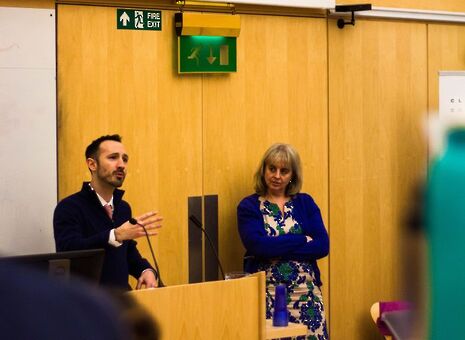Report shows opposition to ‘Hard Brexit’
Study indicates popular preference for ‘Norway model’, but highlights ‘significant misunderstanding’ in Brexit debate

A new report by two Cambridge academics on public attitudes to the relationship between the UK and the EU in the wake of Brexit has found a “striking degree of consensus” at odds with the ‘Hard Brexit’ which the Conservative government is seeking a popular mandate to pursue in the upcoming general election.
Professor Catherine Barnard and Dr Amy Ludlow, from the University’s Faculty of Law, conducted the research, with funding from the UK in a Changing Europe initiative. Over the course of three months, they gathered opinions from hundreds of people across the East of England, including areas which voted overwhelmingly to Remain such as Cambridge and Leave strongholds such as Boston in Lincolnshire.
When asked what they wanted from the future relationship between the UK and the EU, the majority of participants voiced a strong preference for full access to the European Single Market, but with no free movement or payment to the EU - a policy Boris Johnson summarised as “having our cake and eating it”, but which the EU has categorically ruled out.
However, when presented with various more viable options, participants recognised the need for compromise, and reached an overall consensus that a deal similar to that of the European Economic Area’s ‘Norway model’ might be the best choice, at least in the short term.
Membership in the European Economic Area enables Norway to participate in the Single Market in return for complying with EU laws, and so was “consistently seen by Leave and Remain voters alike to be an acceptable compromise that allows limits to freedom of movement and reduces the UK’s financial contribution to the EU”, Barnard added.
The study also suggested that many of those surveyed displayed “significant misunderstanding about what ‘Leave’ and ‘Remain’ meant in the referendum”, and what they meant now in the process of negotiating Britain’s exit from the EU. Many participants, they continued, “felt confused or, in some cases, deliberately misled, by what was offered in the EU referendum”, and often were unable to substantiate their opinion with specific examples.

Speaking to Varsity, Dr Ludlow added that “younger participants found it easier to give examples of how the EU benefited them than most of older participants”, with the most commonly cited examples being “greater choice in shops on the high street” with the arrival of brands from other EU countries and “[lack of] mobile phone roaming charges” within the EU.
“But overall”, she continued, “all of our participants found it harder to give specific examples of the EU’s benefits compared to its disbenefits, beyond a general sense that collaboration with the EU was economically valuable or valuable from a peace-keeping perspective”.
“Participants who had voted to Leave”, on the other hand, “were generally more specific in their criticism of the EU, focusing especially upon migration and the rights of migrants to access UK welfare benefits, as well as the size of the UK’s contribution to the EU budget”.
The report also highlighted a “significant anxiety” among participants over the “‘eerie quietness’ that had ‘descended’ since the referendum decision”. Dr Ludlow told Varsity that “concerns were expressed across all our [canvassing] events about the treatment of EU nationals since the vote to Leave”.
“Participants in Cambridge”, she stressed, “were especially keen to emphasise the cultural and economic contributions they felt that EU nationals made to Cambridge”. Meanwhile, many international students in particular had “expressed concerns about their continued abilities to study in the UK after Brexit”.
Looking to the future, the Barnard and Ludlow concluded in their report that “skillful political leadership” would be needed to heal the divisions in British society as a result of the referendum. “Building on the areas of consensus recognised by our participants might be the way to deliver this”, they continued
 Features / Should I stay or should I go? Cambridge students and alumni reflect on how their memories stay with them15 December 2025
Features / Should I stay or should I go? Cambridge students and alumni reflect on how their memories stay with them15 December 2025 News / Cambridge study finds students learn better with notes than AI13 December 2025
News / Cambridge study finds students learn better with notes than AI13 December 2025 Comment / The magic of an eight-week term15 December 2025
Comment / The magic of an eight-week term15 December 2025 News / News In Brief: Michaelmas marriages, monogamous mammals, and messaging manipulation15 December 2025
News / News In Brief: Michaelmas marriages, monogamous mammals, and messaging manipulation15 December 2025 News / Uni Scout and Guide Club affirms trans inclusion 12 December 2025
News / Uni Scout and Guide Club affirms trans inclusion 12 December 2025









